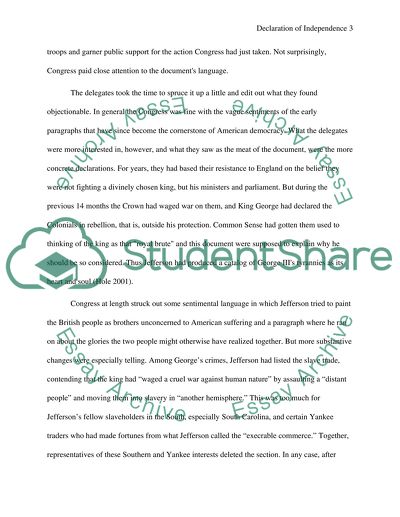Cite this document
(“Declaration of Independence Essay Example | Topics and Well Written Essays - 1250 words”, n.d.)
Declaration of Independence Essay Example | Topics and Well Written Essays - 1250 words. Retrieved from https://studentshare.org/history/1506369-declaration-of-independence
Declaration of Independence Essay Example | Topics and Well Written Essays - 1250 words. Retrieved from https://studentshare.org/history/1506369-declaration-of-independence
(Declaration of Independence Essay Example | Topics and Well Written Essays - 1250 Words)
Declaration of Independence Essay Example | Topics and Well Written Essays - 1250 Words. https://studentshare.org/history/1506369-declaration-of-independence.
Declaration of Independence Essay Example | Topics and Well Written Essays - 1250 Words. https://studentshare.org/history/1506369-declaration-of-independence.
“Declaration of Independence Essay Example | Topics and Well Written Essays - 1250 Words”, n.d. https://studentshare.org/history/1506369-declaration-of-independence.


